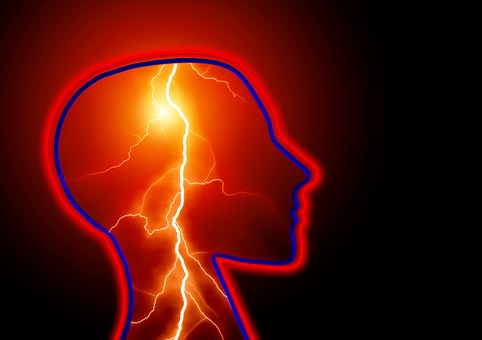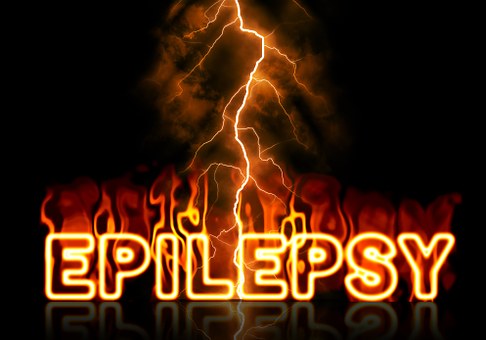Epilepsy is a common neurological disorder where the brain activity becomes abnormal and is also known as a seizure disorder, it is characterized by frequent recurring seizures. Seizures happen when there is a burst of abnormal electrical activity in the brain that temporarily changes how it works, it causes an involuntary change in body movement, awareness, behavior, or sensation. Epilepsy can happen to anyone. It affects both males and females of all races and ages. According to WHO, around 50 million people around the world have epilepsy. Many different conditions that affect someone’s brain can cause it, such as infections, head injury, childbirth complications, certain genetic disorder, and stroke. However, some people with epilepsy do not have any definite cause.

https://pixabay.com
The main symptom of epilepsy is repeated seizures. The warning signs and symptoms of seizures may include:
- Temporary confusion
- Uncontrollable jerking and shaking in the arms and legs
- A staring spell
- Strange sensations, such as unusual smells or tastes, tingling feelings in the arms
- A repetitive movement that seems inappropriate
- Panic, fearful, and become angry for no reason
- Dazed and inability to communicate
- Stiffness for no apparent reason
- Loss of consciousness – sometimes you pass out and not remember what happened.
If any of the symptoms stated above are present, start keeping track of what occurs and share it with your doctor. However, not all behavioral changes are necessarily seizures. Many people mistake epilepsy with other medical problems just because similar symptoms happen to them. Fainting, narcolepsy, cataplexy, sleep disorders, nightmares, panic attacks, maybe similar to seizures, but they’re not the same. Other than knowing the main symptoms of a seizure, it is important to differentiate it with something else. Seizures are usually unpredictable, meaning you can’t predict when and where it may happen. They are also episodic, brief, and stereotypic. The best way to know for sure is to see a professional and get a test or an evaluation. Seek immediate help if one of the following condition occurs:
- You are having a seizure for the first time
- You have breathing problems
- You have seriously injured yourself during the seizure
- You are experiencing heat exhaustion
- You have a high fever
- You are pregnant
- You have diabetes
- The seizure lasts more than five minutes
- A second seizure follows immediately, or you have lots of seizures in a row.
Depending on which part of the brain is involved, seizures have many different effects on people. Doctors generally classify seizures as focal or generalized based on how abnormal brain activity begins.
- Focal seizures or partial seizures happen when a seizure appears in just one area of your brain. There are two categories of focal seizures: focal seizures without loss of consciousness and focal seizures with impaired awareness. The symptoms for focal seizures are often confused with other neurological disorders, such as migraine and mental illness. Therefore, a thorough examination is needed to distinguish it from other disorders.
- Generalized seizers involve all areas of the brain. There are six types of generalized seizures, including absence seizures, tonic seizures, atonic seizures, clonic seizures, myoclonic seizures, and tonic-clonic seizures.
There is still no cure for most types of epilepsy. However, the condition can be managed with treatments, and surgery can stop some kinds of seizures from occurring. Treatment can help many people with epilepsy have fewer seizures or even stop having seizures completely. Treatments include:
- Medicines. Your doctor will prescribe seizure-preventing drugs or anti-epileptic drugs. Anti-epileptic drugs (AEDs) are mostly taken orally. Not all patients react the same to AEDs, but it appears to help control 70% of cases of seizures.
- A special diet. A ketogenic diet can help control seizures.
- Surgery. People who respond poorly to medication treatments can opt for surgery to remove a small part of the brain that’s causing the seizures.
- A small electrical device. People with epilepsy can choose to undergo a procedure to put a small electrical device inside their body that can help control seizures.

https://pixabay.com
Some people may need treatments for life, but others might be able to stop treatment if the seizures disappear over time. Although epilepsy is a life-long condition, most people can have a normal life as long as their seizures are well controlled.
